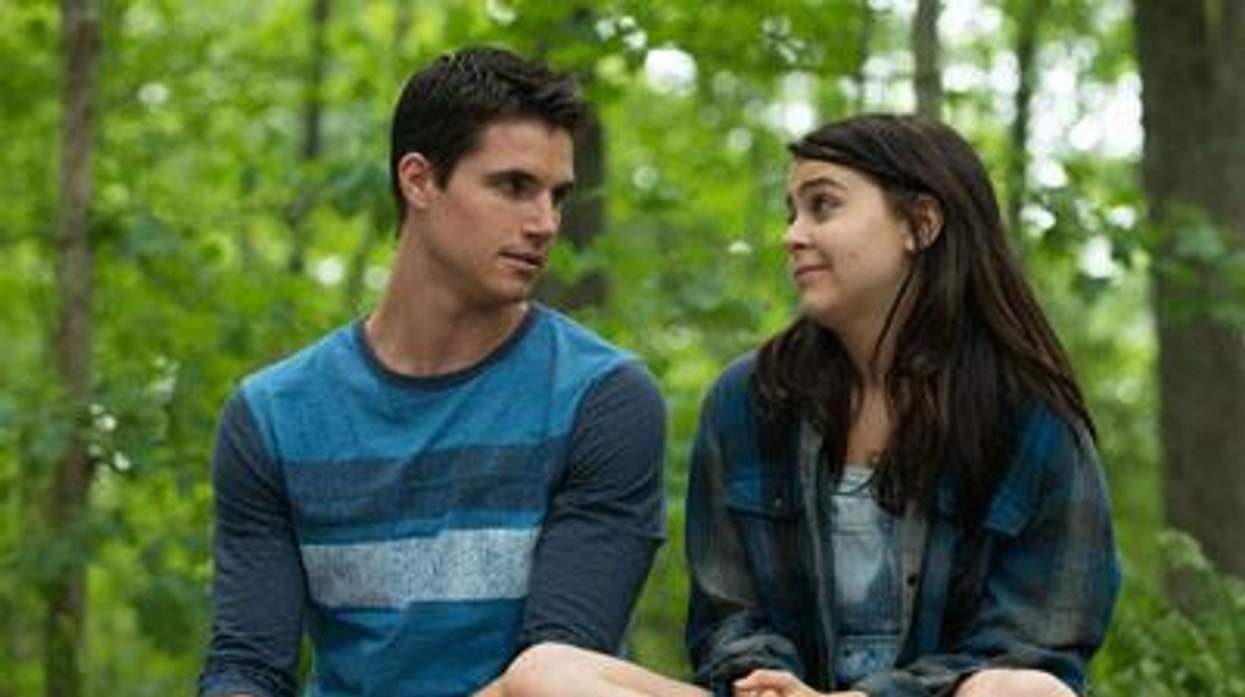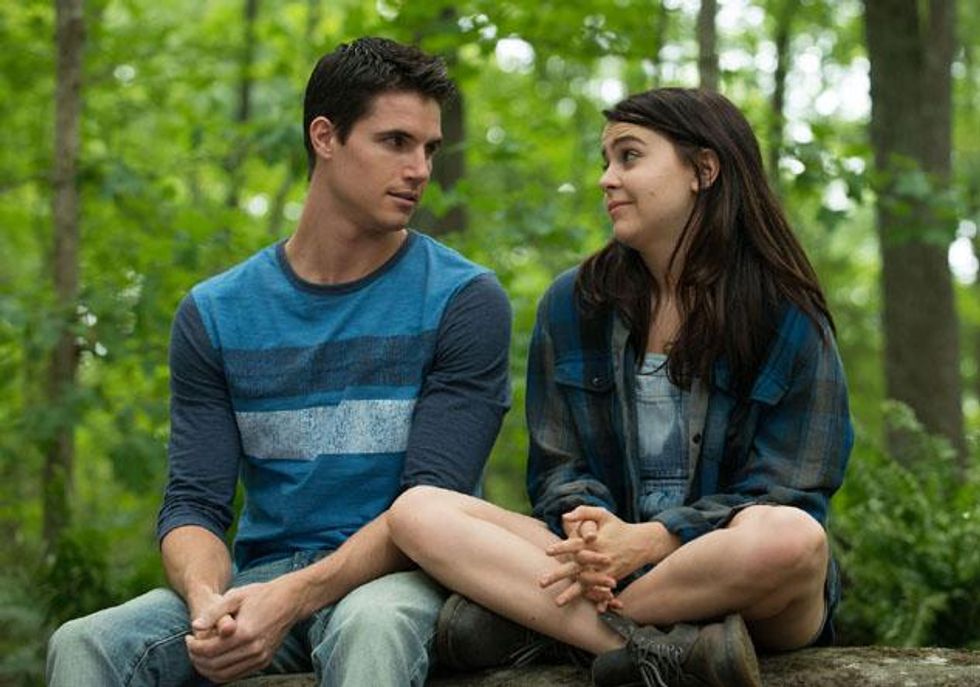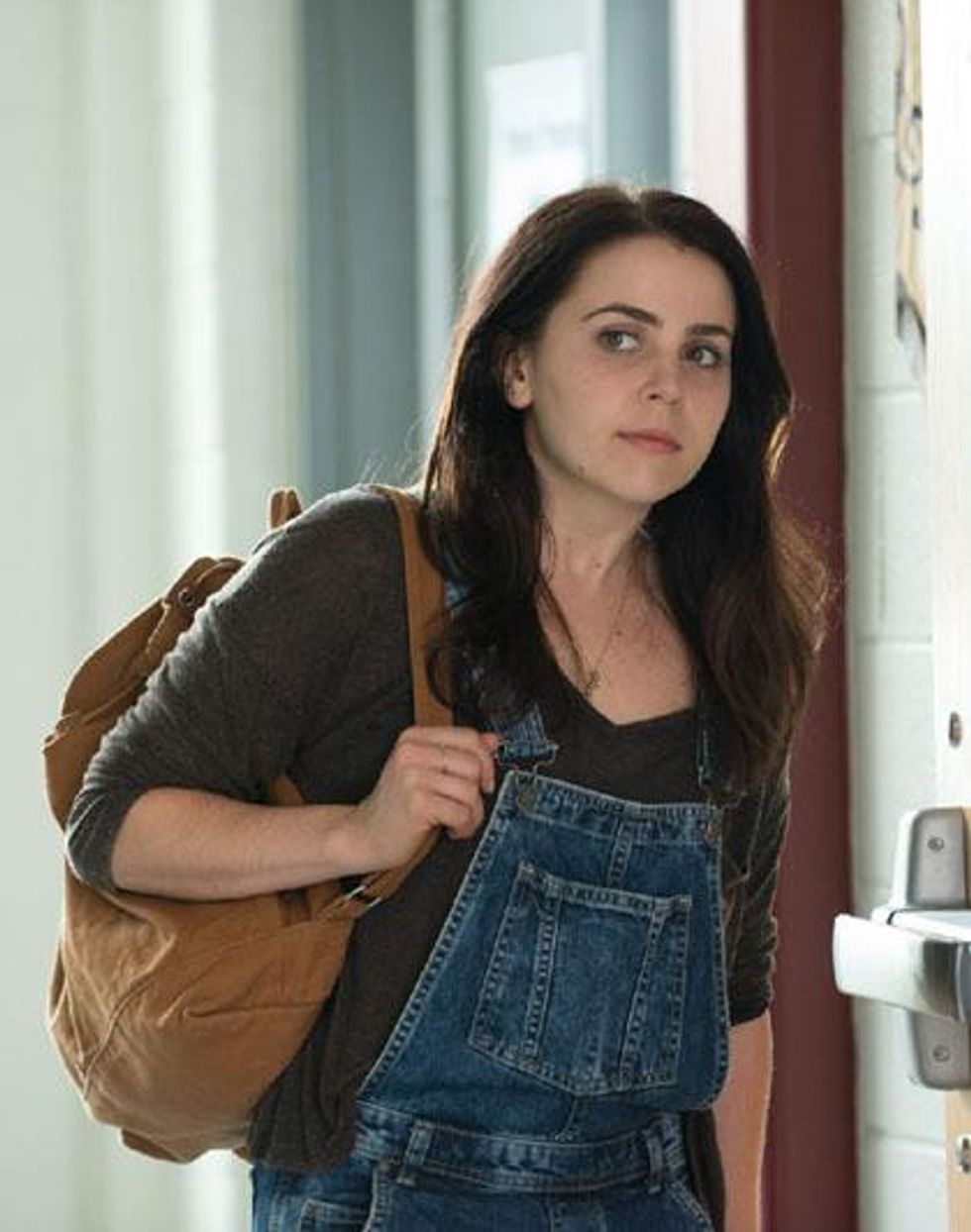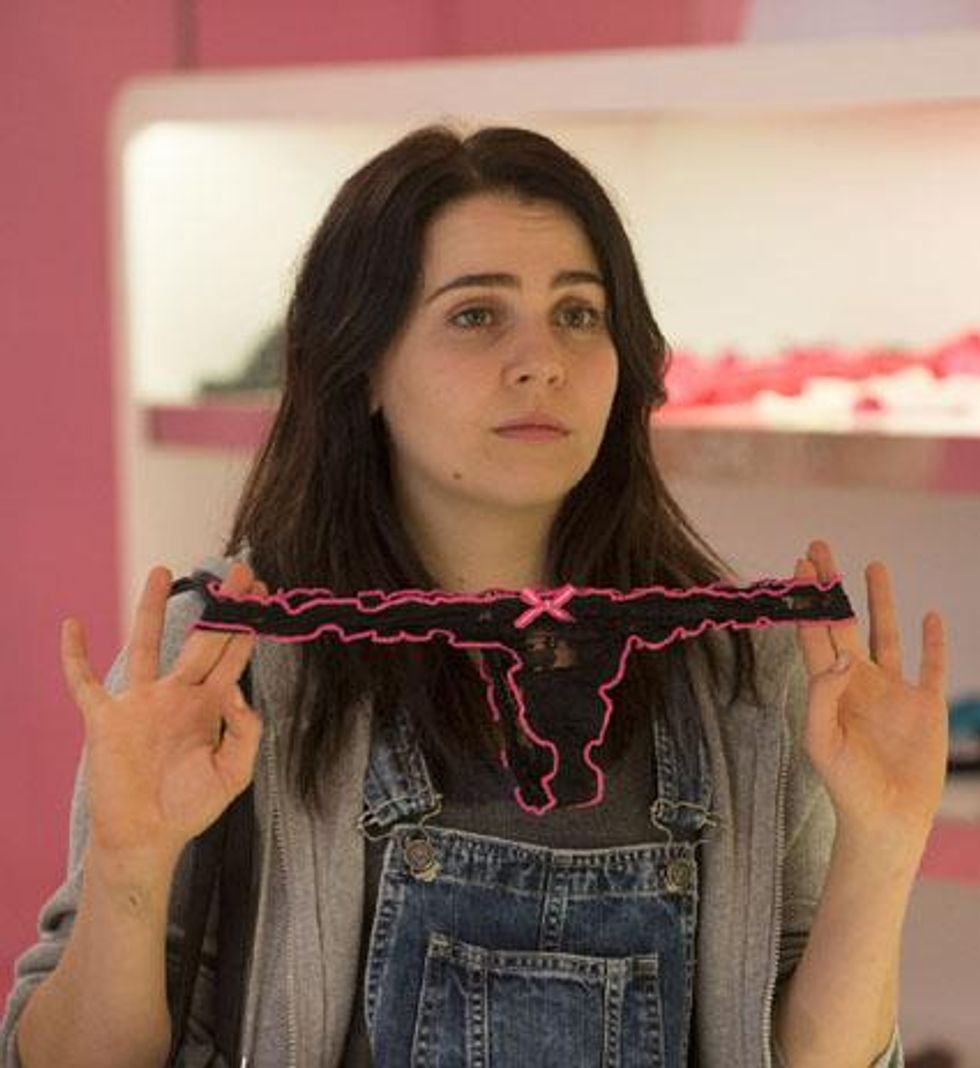
Above: Robbie Amell and Mae Whitman in The DUFF. Photos by Guy D'Alema.
Few teen dramas and rom-coms escape the ranks of JV productions to become varsity players in the cinematic world, but a handful of films in the genre such as Fast Times at Ridgemont High, The Breakfast Club, Heathers, Clueless, and Mean Girls have not only left a pop culture footprint, they've helped define generations.
It's a reality Mae Whitman says she was well aware of when she landed the part of Bianca in director Ari Sandel's The DUFF. But as she settles into the seat across from me in a sparse conference room on the third floor of CBS Studios, she explains she never felt like the genre's past successes cast a shadow on her performance in the production, because she was focused on the opportunity to achieve something more personal -- the chance to tell a part of her own story.
"Like Bianca, I got bullied a lot in high school and I was put into a lot of boxes, labeled a tomboy and all sorts of things, but overcoming that is exactly the road that led me to where I am today," she says. "This movie gave me the chance to share a piece of my personal struggle and show others those labels we subscribe to aren't real, and we don't have to participate in [perpetuating] them."
The film's story, which centers around Bianca's (Whitman) mission to upend the social structure of her high school after she learns she has been labeled the DUFF (Designated Ugly Fat Friend) compared to her "prettier besties," has strong parallels to the struggles of LGBT youth. Not only in the sense that many are bullied because they are different from the traditional norm, but in the way a new generation has begun to view LGBT friends as an accessory or sidekick.

"The DUFF doesn't have to be fat or ugly," Wesley (Robbie Amell), the star football player of Bianca's high school and her next-door neighbor, explains to her in the film. "Every group of friends has one ... you're approachable ... you friend it up, good for you."
Whitman says, "For me, that parallel is everything. People have a strong reaction to the words 'designated ugly fat friend,' and they should. That is the kind of shit [LGBT kids] get called every single day in school. The whole concept of this movie to me is a metaphor for looking at this social infrastructure that certain people somehow deserve to be called this or that, or it's OK to define people by parameters that are totally subjective."
Her passion for the film's message is evident as she scoots to the edge of her seat and leans forward before continuing. "The DUFF is about deconstructing that and showing it's all a joke because ultimately that doesn't matter. You might as well call me a big blue dinosaur if you're going to call me anything because none of those labels make any sense. They aren't real. The boxes we get put into aren't real, and I wanted to unravel that for anyone who has ever felt this."
In addition to the film's parallels to the struggles of LGBT youth, The DUFF deals directly with an issue unique to the millennial high school experience. In an era when social media can be wielded as a weapon, teens of all types now face becoming even bigger targets online than in the classroom. It's a reality perfectly illustrated in the film during a scene in which Bianca is secretly recorded as she jokingly flirts with a department store mannequin. When the video is uploaded to the Internet by the high school's queen of mean, Madison (Bella Thorne), what began as a moment of playful fun quickly turns into a nightmare for Whitman's character as the video is streamed on smartphones across campus.
"I think it's a really tricky time for kids in high school -- even more so than when I was in it -- because now more than ever, bullying online is so rampant," the 26-year-old actor says. "People are really big and mean with their opinions behind a screen, and the world of social media is so strong and so pervasive that it's going to become more uncomfortable before we become aware of how to make it work best for us. But I really believe the more we can share about how online communication makes us feel, the more easily it will flow."

Though the film's underlying themes are passionate subject matter for Whitman, she admits they aren't the only reason she's fond of her experience working on The DUFF.
"Ari [Sandel] gave us a lot of freedom and allowed us to improvise so much," she says, grinning as she recalls one scene in particular.
"There's a moment in the film where Robbie is making out with me and his character says he's more of a tongue guy, and I say, 'I gathered as much when I felt your tongue sticking out of my butthole," she laughs. "It's a great moment in the film and you can see he's shocked by the look on his face because the line was a total improv. We really had so much fun working on this film."
Still, it's The DUFF's social message of which Whitman says she's most proud.
"If this film helps even one person feel more understood or less alone, then I would feel like we succeeded," she says warmly. "But even more, I hope it helps people realize if someone is going out of their way to make you feel terrible than they're threatened by you, and that makes you pretty special. That's what you should take from that and let it inspire you rather than getting caught up in all that other shit. People will try to put you in a box or keep you down in some way your whole life, but you don't have subscribe to their limited definition of who you are. You can walk away from all of that and be whoever the fuck you want to be."
The DUFF lands in theaters February 20. Watch the trailer below.







































































Charlie Kirk DID say stoning gay people was the 'perfect law' — and these other heinous quotes